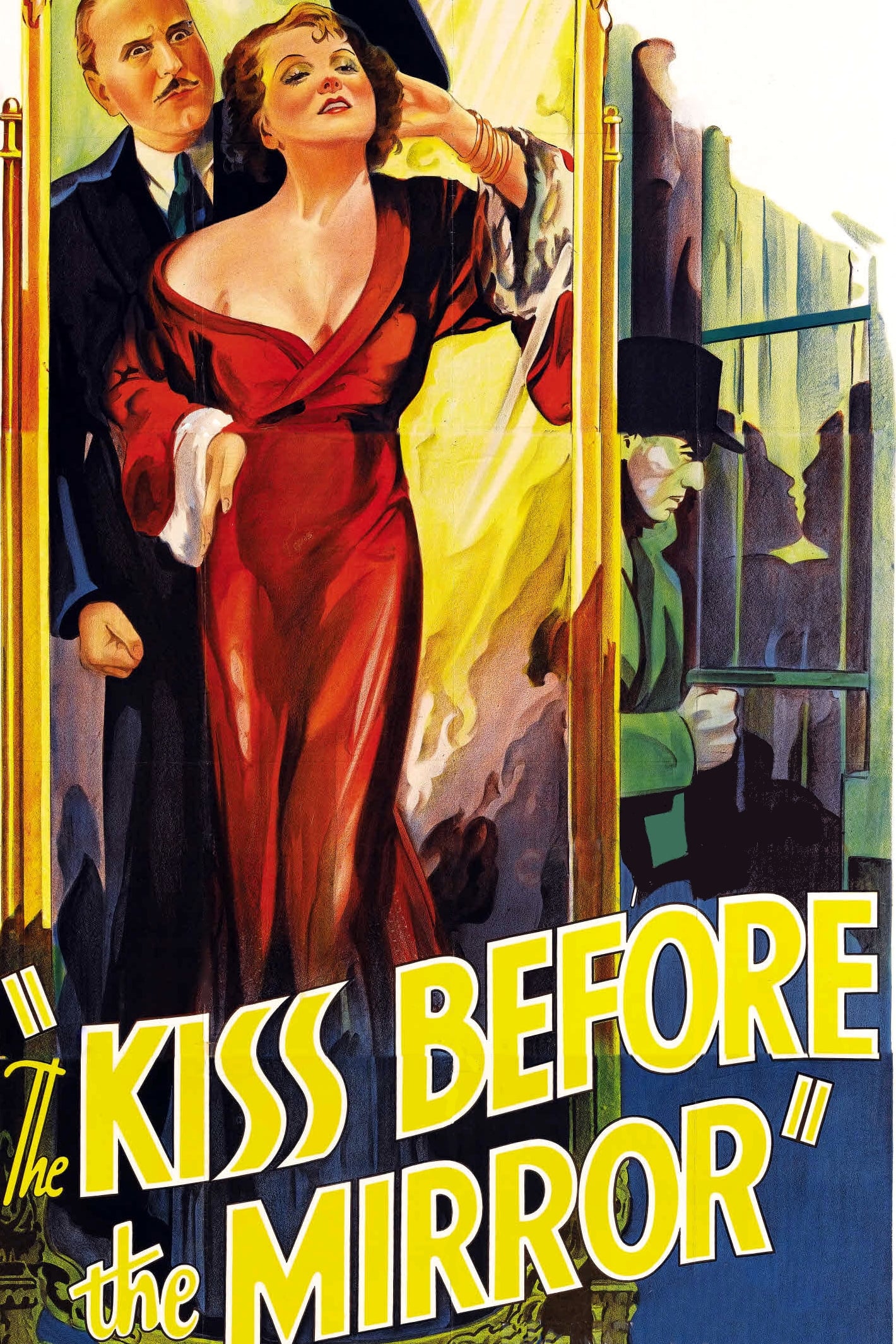
When a famous doctor kills his adulterous wife, he is defended by his best friend, an attorney who suspects that his own wife is having an affair.
04 Mar The Kiss before the Mirror (1933)
Sight, Insight.
We used to have such a thing as a courtroom movie. The lawyer — usually the lawyer for the defence — would make a presentation designed to affect us while it affects then, often in the same way. Think Atticus Finch. These projects revolve around a central courtroom event, usually a dramatic speech, delivered theatrically.
The setup here is unusual. A man has followed his young wife as she meets her lover. As she disrobes prior to having sex, he shoots and kills her. He then calls the police and confesses. His best friend is a lawyer, determined to get him off. In finding out what happened, the murderer tells how he discovered his wife was having an affair. He is watching her lovingly; she is preparing her hair and face in front of a mirror, wearing a new dress. He cannot control himself; comes and kisses her. She violently pushes him away because he has undone her work. At this point, he knows the preparations are for someone else.
Meanwhile, we discover that the lawyer also loves his wife. He repeats the same exercise, of the kiss in the mirror and to his horror discovers the same effect. His wife is having an affair, which he confirms by following.
Now the setup is that he decides that if he can make a case strong enough to get his friend released, he will murder his wife based on the same justification. This is not because of fear of prosecution, but internal justification. His friend is against it. The lawyer has two assistants; a woman who is carefully blending her womanness with her professional intellectualism and an older guy, an alcoholic who is frustrated that no one ever listens to his pronouncements on life.
Our lawyer does indeed give the speech of a lifetime in the courtroom. It is effective enough for the jury to dismiss the charges, though we cannot fathom why other than a combination of “she deserved it” and the opinion a man’s love can be so intense that it transcends reason and the law. During his courtroom speech, he pulls out a gun and says that he would do the same thing, at which point his wife knows she has been found out. Subsequently she offers herself to be killed. You may notice she has some power over what happens when she says that he never loved her as much as the friend loved his wife.
This, or perhaps general fear mean that he does not go through with it, and soon they are kissing in front of the mirror.
The misogynist drivers in this thing are pretty hard to take. But the subtle structure is pretty good. It is built around the notion of actions and circumstances that allow you to see yourself and what you do. The filmmaker is James Whale and if you allow the crass assumptions and the childish mirror metaphor, this is a wonderful piece of visual storytelling. The American invention of noir is often supposed to have been most strongly influenced by so-called German expressionism. But look here for more profound control over the camera and the light — and integration of visual effect with the narrative, such as it is.
Posted in 2010
Ted’s Evaluation — 2 of 3: Has some interesting elements.


No Comments